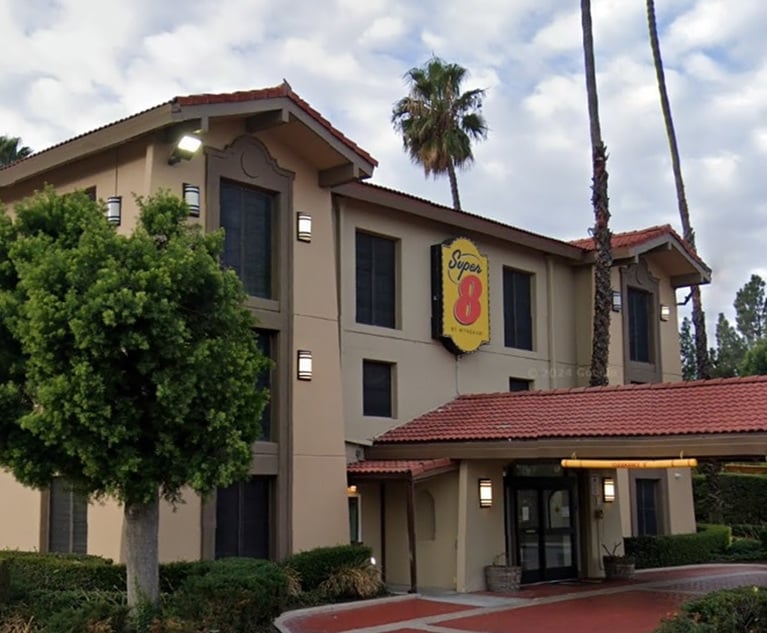Unpublished Opinions for the Week of September 25, 2017
01-2-4289 In the Matter of the Denial of Tedesco's Firearms Purchaser ID Card, N.J. Super. App. Div. (per curiam) (5 pp.) Individual appealed the denial…
September 22, 2017 at 11:17 AM
110 minute read
01-2-4289 In the Matter of the Denial of Tedesco's Firearms Purchaser ID Card, N.J. Super. App. Div. (per curiam) (5 pp.) Individual appealed the denial of his request for a “second and/or duplicate Firearms Purchaser Identification Card.” The trial judge heard evidence that individual discharged a weapon into a stack of magazine while his wife and sons were in the house. Individual was arrested and admitted he fired the gun because he was depressed and intoxicated. Individual alleged he had resolved his mental health and alcohol issues and completed substance abuse and alcohol treatment but trial judge found that it would be against public health, safety and welfare for him to receive the FPIC. Individual argued the trial judge's findings were against the weight of the evidence. The court found that there was substantial credible evidence in the record to support the trial judge's findings.
36-2-4248 SHT Corp. v. County of Somerset, N.J. Super. App. Div. (per curiam) (10 pp.) Respondent solicited bids for towing and storage work for its county prosecutor's office. Three towing businesses submitted bids with appellant providing the lowest bid. Respondent nonetheless award the contract to the second lowest bid and rejected appellant's bid as nonresponsive to the bid specifications, which included a warning that: “Failure to sign and give all information in the bid may result in the bid being rejected.” Respondent averred that rejection was based on discovery of issues appellant was having and potential removal from a rotation cycle; respondent did not deem it prudent to waive the defects in the bid proposal. On appeal, appellant sought reversal of the law division's order upholding respondent's decision to award the contract to the second lowest bidder. The court affirmed holding appellant was less than candid in its response to the bid questionnaire. The answer “no” to a question, followed by an incomplete account of its history of complaints and pending cases in neighboring municipalities rendered the answer not just nonresponsive, but intentionally evasive. Under these circumstances, respondent was well within its right to reject the bid. Accordingly, the court affirmed.
07-2-4249 Thomas v. Spolnicki, N.J. Super. App. Div. (per curiam) (12 pp.) Plaintiffs appealed the dismissal of their fourth complaint on res judicata and the entire controversy doctrine grounds in their dispute over the assets of a limousine company. In the first lawsuit, defendant obtained a default judgment against plaintiffs but the judgment did not show what claims were asserted. Defendant's second lawsuit sought dissolution of the limousine company and an order transferring title of two vehicles to defendant's company. Plaintiff filed counterclaims and demanded an accounting and repayment of loans. Consent orders resolved ownership of the two vehicles and the complaints were dismissed. Plaintiff refiled his claim but that action was dismissed for lack of prosecution. Plaintiff's fourth lawsuit contended that defendant improperly distributed the company's assets following its dissolution and asserted breach of contract and other claims. Defendant moved to dismiss on res judicata grounds. The court found that three judgments carried a preclusive effect, the default judgment and two consent orders that were final judgments on the issue of title ownership of three vehicles. The court found that plaintiffs' allegations concerning defendant's conduct after the dissolution of the company occurred after the default judgment was entered and that judgment could not have a preclusive effect on claims based on after-occurring events.
This content has been archived. It is available through our partners, LexisNexis® and Bloomberg Law.
To view this content, please continue to their sites.
Not a Lexis Subscriber?
Subscribe Now
Not a Bloomberg Law Subscriber?
Subscribe Now
NOT FOR REPRINT
© 2025 ALM Global, LLC, All Rights Reserved. Request academic re-use from www.copyright.com. All other uses, submit a request to [email protected]. For more information visit Asset & Logo Licensing.
You Might Like
View All


Trending Stories
- 1Lawyers' Reenactment Footage Leads to $1.5M Settlement
- 2People in the News—Feb. 4, 2025—McGuireWoods, Barley Snyder
- 3Eighth Circuit Determines No Standing for Website User Concerned With Privacy Who Challenged Session-Replay Technology
- 4Superior Court Re-examines Death of a Party Pending a Divorce Action
- 5Chicago Law Requiring Women, Minority Ownership Stake in Casinos Is Unconstitutional, New Suit Claims
Who Got The Work
J. Brugh Lower of Gibbons has entered an appearance for industrial equipment supplier Devco Corporation in a pending trademark infringement lawsuit. The suit, accusing the defendant of selling knock-off Graco products, was filed Dec. 18 in New Jersey District Court by Rivkin Radler on behalf of Graco Inc. and Graco Minnesota. The case, assigned to U.S. District Judge Zahid N. Quraishi, is 3:24-cv-11294, Graco Inc. et al v. Devco Corporation.
Who Got The Work
Rebecca Maller-Stein and Kent A. Yalowitz of Arnold & Porter Kaye Scholer have entered their appearances for Hanaco Venture Capital and its executives, Lior Prosor and David Frankel, in a pending securities lawsuit. The action, filed on Dec. 24 in New York Southern District Court by Zell, Aron & Co. on behalf of Goldeneye Advisors, accuses the defendants of negligently and fraudulently managing the plaintiff's $1 million investment. The case, assigned to U.S. District Judge Vernon S. Broderick, is 1:24-cv-09918, Goldeneye Advisors, LLC v. Hanaco Venture Capital, Ltd. et al.
Who Got The Work
Attorneys from A&O Shearman has stepped in as defense counsel for Toronto-Dominion Bank and other defendants in a pending securities class action. The suit, filed Dec. 11 in New York Southern District Court by Bleichmar Fonti & Auld, accuses the defendants of concealing the bank's 'pervasive' deficiencies in regards to its compliance with the Bank Secrecy Act and the quality of its anti-money laundering controls. The case, assigned to U.S. District Judge Arun Subramanian, is 1:24-cv-09445, Gonzalez v. The Toronto-Dominion Bank et al.
Who Got The Work
Crown Castle International, a Pennsylvania company providing shared communications infrastructure, has turned to Luke D. Wolf of Gordon Rees Scully Mansukhani to fend off a pending breach-of-contract lawsuit. The court action, filed Nov. 25 in Michigan Eastern District Court by Hooper Hathaway PC on behalf of The Town Residences LLC, accuses Crown Castle of failing to transfer approximately $30,000 in utility payments from T-Mobile in breach of a roof-top lease and assignment agreement. The case, assigned to U.S. District Judge Susan K. Declercq, is 2:24-cv-13131, The Town Residences LLC v. T-Mobile US, Inc. et al.
Who Got The Work
Wilfred P. Coronato and Daniel M. Schwartz of McCarter & English have stepped in as defense counsel to Electrolux Home Products Inc. in a pending product liability lawsuit. The court action, filed Nov. 26 in New York Eastern District Court by Poulos Lopiccolo PC and Nagel Rice LLP on behalf of David Stern, alleges that the defendant's refrigerators’ drawers and shelving repeatedly break and fall apart within months after purchase. The case, assigned to U.S. District Judge Joan M. Azrack, is 2:24-cv-08204, Stern v. Electrolux Home Products, Inc.
Featured Firms
Law Offices of Gary Martin Hays & Associates, P.C.
(470) 294-1674
Law Offices of Mark E. Salomone
(857) 444-6468
Smith & Hassler
(713) 739-1250







